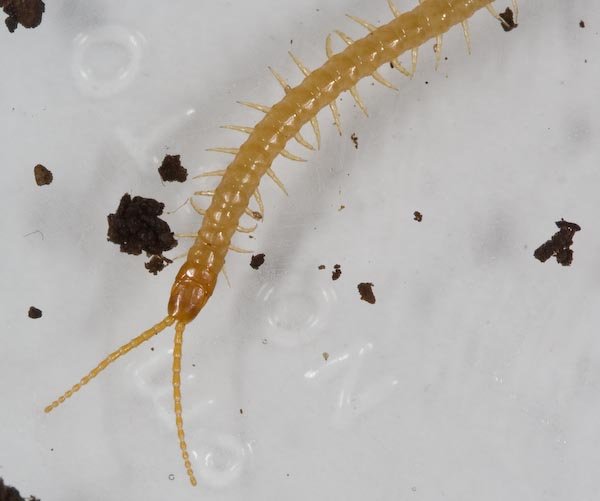
Unidentified Centipede
I found this centipede crawling around on/in dirt uncovered when I lifted up a piece of plastic that had been sitting since last summer. It looks a little different than the centipedes I have seen more commonly which are darker orange and seem to be wider, but I don’t really know about the differences between centipedes, so it may be the same species (I’ll try to get one of those other ones before too long to see).


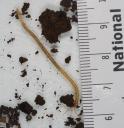
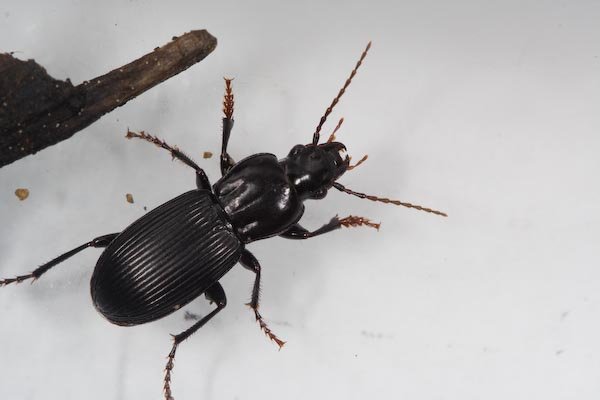
Unidentified Beetle
Pterostichus sp.
I found this beetle, and several others like it, scurrying to find cover when I lifted up a piece of plastic in the backyard. It definitely seemed to like burrowing down in the dirt to get away.
Any help with identification of this beetle would be appreciated.
Thanks to the helpful folks at bugguide.net, I know the genus of this beetle. However, it was also mentioned that Alaska has 35 species in this genus. Perhaps at a later date, the species can be determined, but for now, I’ll be happy with just the genus.

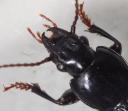
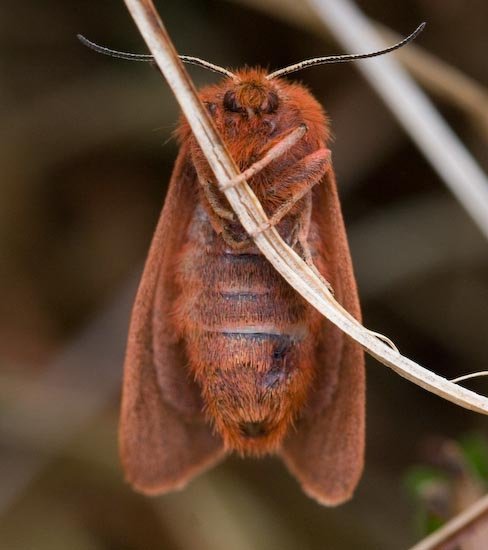
Ruby Tiger Moth
Phragmatobia fuliginosa
I am not positive about this identification, but based on what I looked at on the Moth Photographers Group website, this seems correct to me. I first noticed it crawling around in last years dead sedges, but once it realized I had noticed it, it stopped moving. I handled it a little bit as I was getting photos, and it never tried to fly, or really even move much.
Thanks to Ethan Kistler via bugguide.net for the help. I had originally thought this might be a Brown Tiger Moth, but Ruby Tiger Moth does seem to be a better fit.
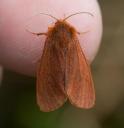
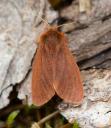

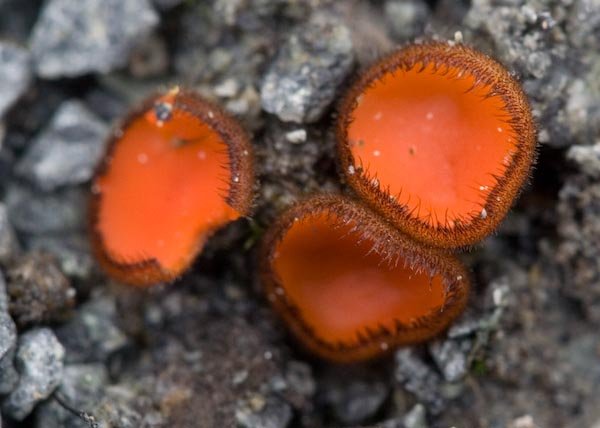
Eyelash Cup
Scutellinia scutellata
I have never noticed this small cup fungus before. With help from local fungi enthusiast Kitty LaBounty, I learned the identification. The common name seems apt. Although the main photo makes it look like the fungus is growing out of the gravel, it’s probably growing from a piece of buried wood, as I saw other cups close by on a nearly buried piece of wood.

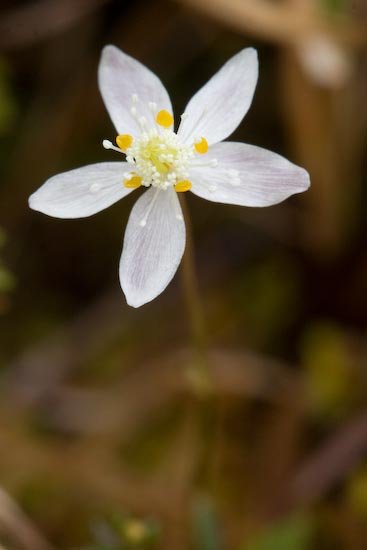
Three-leaf Goldthread
Coptis trifolia
Most of the year this plant is easy to miss. It’s leaves just seem to blend into the ‘wall of green’ in the muskeg and whatever unlike one of its close relatives, its seedpods are apparently not that showy either (at least I have never noticed them). The exception to this is the brief period in the spring when small white flowers can be seen dotting the muskeg. The plant is actually fairly common in the muskegs around town, even if it’s often overlooked.

















